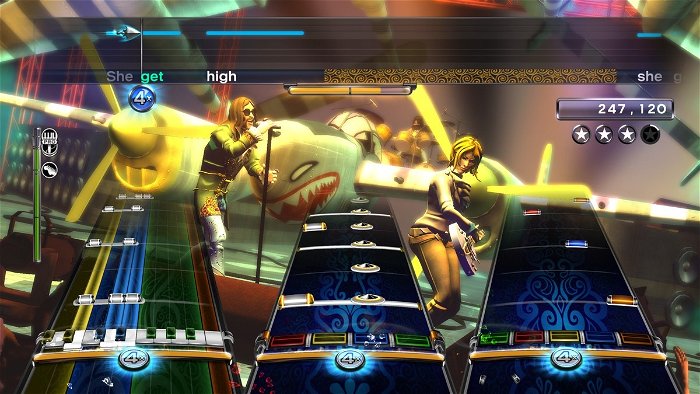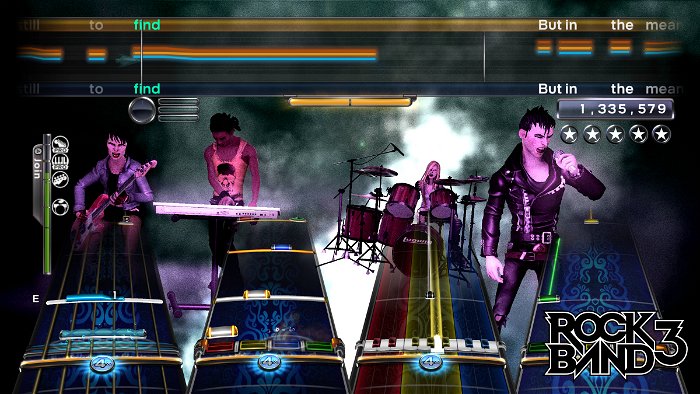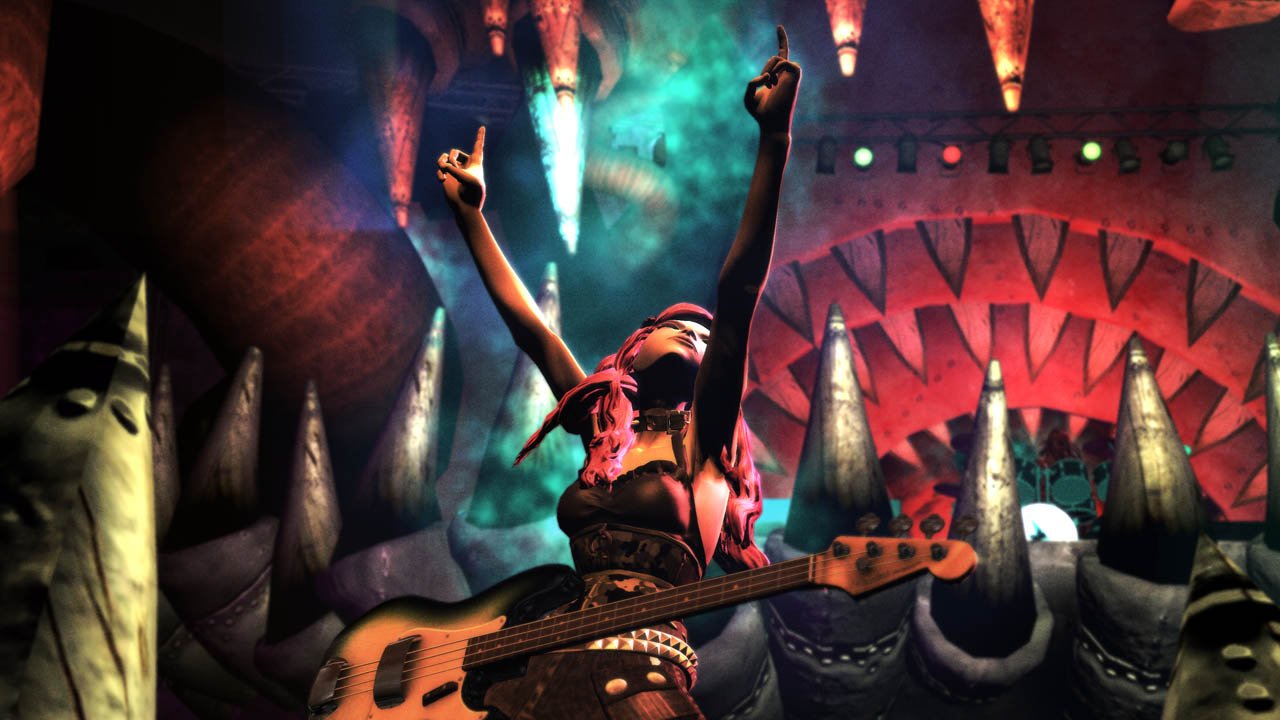Last week, Harmonix, current stewards of the Dance Central and Fantasia franchises, raised a few eyebrows with an online poll asking about the Rock Band franchise. A few of the questions focused on gauging interest for a few Rock Band options, including new DLC, a new game on last generation hardware, and a new game on current generation hardware. Harmonix, obviously, is fishing for responses to see whether or not it’s worth the time, money and life lost to crunch periods to go once more unto the breach and make a new Rock Band game. It’s interesting to note that this is a very modest probe on their part. There’s nothing definitive about these questions, and that’s with good reason; Harmonix is not confident that a new Rock Band game would be universally embraced.
They’re right to be cautious.

Whether any of the blame lay at their feet or not, it was just a few years ago that the once booming rhythm genre imploded. Activision certainly played a role in that, oversaturating the market with five Guitar Hero games in one year. But a more significant factor was the double-edged sword of the entire rhythm genre being embraced by the casual audience. On the plus side, it meant sales blown out of all reasonable proportion as a fad got underway. On the minus side, there was no momentum to those sales in the same way there is for hardcore games, where fans reliably continue to buy games for months and years on a regular basis. When the fad died down, just like with the Wii, the phenomenal profits Activision and Harmonix experienced suddenly dried up. Activision simply abandoned the Guitar Hero franchise, while Harmonix laid Rock Band to rest and was sold by Viacom (owners of MTV), once again becoming an indie studio.
In some ways, this was inevitable. Even Harmonix themselves, when they first made the original Guitar Hero, never expected it to become the massive, social phenomenon that took the world by storm. Having made modest titles such as Frequency and Amplitude, they were initially expecting more of the same. Guitar Hero was supposed to be a niche game appealing to a small circle of fans for Japanese rhythm games such as Guitar Freaks and Beatmania that had no local alternatives. Had this actually happened, the rhythm genre itself might have had a more reasonable sales life, with more time to evolve as its audience grew. This happened with fighting games, platformers, and perhaps most explosively, with the FPS, which is the dominant genre today.
Now Harmonix has to ask itself, “What can we do to make a new Rock Band game that actually makes a profit?”
There are a few key features they’ll likely need to sort out if they want a possible Rock Band 4 game to have the best possible chance at adoption. The most important is the instruments. Rock Band 4 is dead in the water if Harmonix tells old fans, “You will need to buy even more new plastic guitars and drums.” Many fans still have their guitars, keyboards and perhaps even an Ion drum set or two sitting in a room, basement, or attic, collecting dust. These plastic instruments were sizable investments a few years ago, and they’ll be sizable again for a new batch. Obviously, Harmonix will have to have some new instruments available for purchase for the uninitiated (or perhaps for people that got rid of their instruments years ago), but this should be an OPTIONAL purchase, not mandatory. No one put a gun to anyone’s head to buy new instruments for Rock Band 3 and that should hold true for RB4.

Another feature for retaining fan good will would be to allow all purchased songs from past RB games to carry over to the new game. This is actually not technically difficult, especially if the purchaser is on the same user account from the past. After all, even if you move from the PS3 to the PS4, the PSN user account itself still has all your purchases on record. The actual data for songs and the required inputs is not particularly convoluted either, so the only real challenge Harmonix faces here is licensing. It’s unknown whether they can legally allow these songs to migrate to a different platform without paying out user license/royalties to the musicians and music publishers all over again. Being a smaller, indie studio now without the massive backing of Viacom, that’s probably not financially feasible anymore if they didn’t’ have the foresight to make contracts that took this into account the first time they acquired the music.
These concessions in no way guarantee that Rock Band 4 would be a hit. But they go a long way towards convincing the existing fans that it’s worth it to jump back in. If Harmonix keeps its ambitions small, and avoids trying to meet—or exceed—sale figures from the fad days of Guitar Hero, there’s a chance that a more modest game aimed at keeping its fans happy and regularly buying DLC could make money. And that might just keep Rock Band alive for a new generation of plastic musicians.




